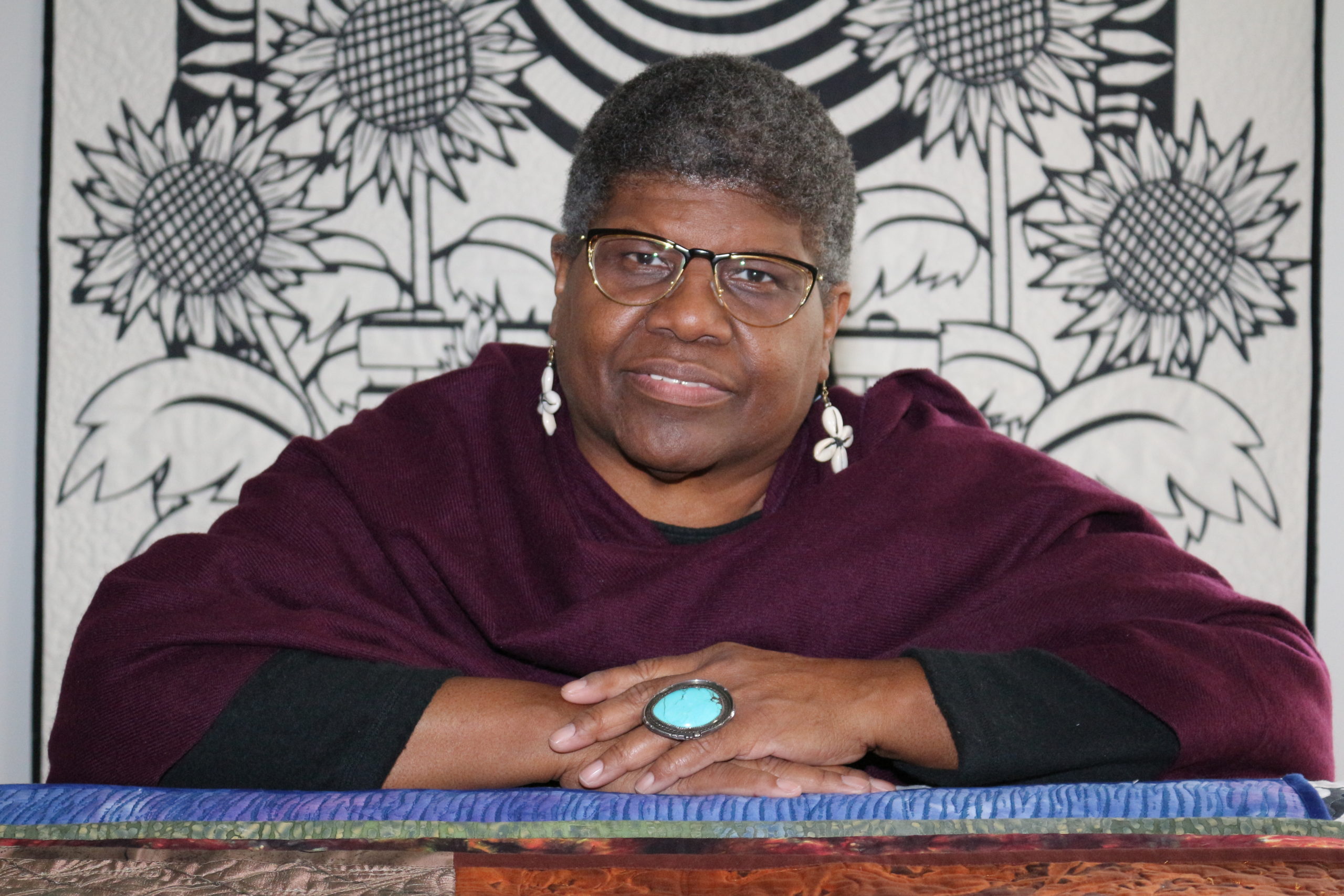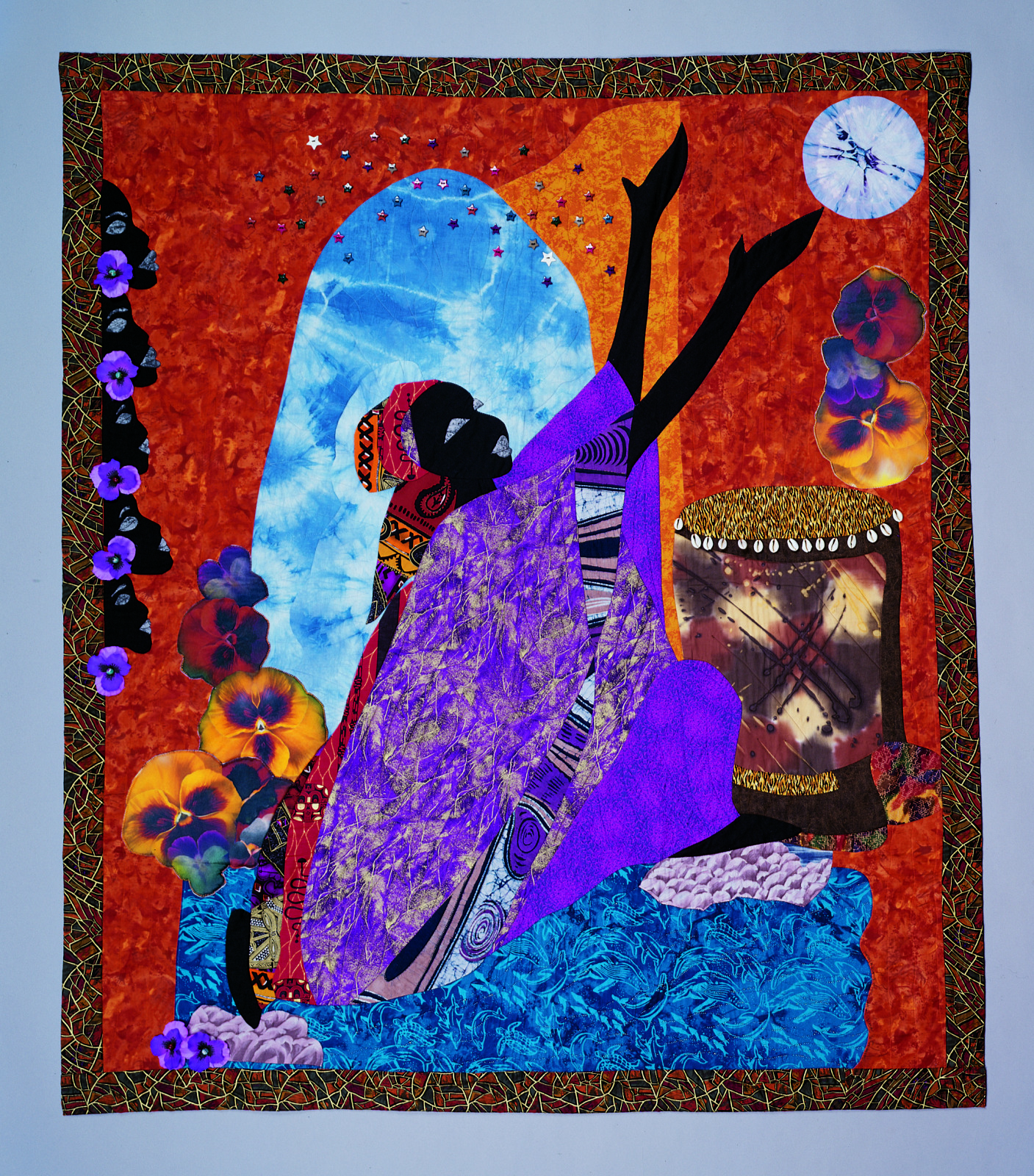
Known as one of the most influential African American quilt historians in the United States, Carolyn Mazloomi, PhD, who was trained as an aerospace engineer, has artwork showcased in numerous important museums around the world, including the Smithsonian American Art Museum, and American Museum of Design.
Fiber artist Dr. Carolyn Mazloomi’s passion for educating through art leads her to curate We Are the Story
She thought she’d be settled into retirement by now, but Carolyn Mazloomi’s passion for her art pushes her to keep making, curating and working. Mazloomi, who earned a doctorate in aerospace engineering from the University of Southern California and worked as a pilot and Federal Aviation Administration crash site investigator, became involved in fiber artists and quilting in the early 1970s, and founded the Women of Color Quilters Network in 1985. She currently is spearheading and curating the exhibition We Are the Story, set to open at various sites throughout Minneapolis later this summer. The exhibition is a response to the death of George Floyd in the hands of a Minneapolis police officer.
We Are the Story is a series of six quilt exhibitions by the Women of Color Quilters Network, and Textile Center created under the curatorial direction of Mazloomi. The series is organized around the themes of remembering those lost to police brutality, history of civil rights, and racism in America.
“I am an artist quiltmaker, and I like to tell stories,” says Mazloomi. “Most of the work I do deals with issues of race or status of women, and a lot of the work is somewhat controversial, but I hope viewers look at it and learn something and think about things and how things possibly could be.”
As a mother and grandmother, Mazloomi was rocked when she saw the video of George Floyd being pinned to the ground, and heard him cry out for his mother.
“It just shook me to my core. I cried for days because it was sad and tragic how he passed. But hearing him call for his mother personified the role of women in the sphere of the universe,” she says.
Mazloomi is a believer in the dynamic power of females, and has been involved in the economic development of women through the arts for over 30 years. Throughout her career of making textile art, many of her works showcase the women and their strong role in society.
“Young women need to know about the power they wield. As women, we are the first teachers because we give birth. We are the teachers of humanity. It’s a position that influences all of humanity,” she says. “The first word a baby learns is usually mama and it’s so strange that the last thing a human being may talk about when dying is their mother. They call on their mother.”
A self-proclaimed news addict, she listens to news while she works. Her quilts serve as a response to what’s going on in her environment, and the world, and is meant to evoke thought.
“My inspiration always comes from the environment around me. Currently the environment is very toxic, so I’m creating work about human condition — not just here in the United States, but of refugees around the world because women and children form the greater population of refugees,” she says.
When asked what she hopes to see evolve from the protests, pandemic and social struggles of now, she answers with the wisdom, patience and hopeful tone of someone who has weathered years of society’s injustice.
“Let’s deal with the pandemic first,” she says. “Because African Americans are disproportionately affected, they are dying more than anyone else,” she says. “Hopefully out of this pandemic, maybe it will help African Americans. They have health issues brought about due to racism because they don’t have access to good housing and healthcare, which plays into susceptibility to the virus.”
Thirteen people in the Women of Color Quilters Network died due to COVID-19. She and other members of the network collectively made more than 27,000 masks that were given to healthcare workers, nonprofit organizations, funeral homes and other places of need.
“When it comes to protests, I am happy to see protesters aren’t just African Americans, but a diverse group of people around the country,” says Mazloomi. “Anything that can prompt racial equality and justice in America is a good thing. Hopefully something good will come of these demonstrations, and our government and individuals will make efforts to be more civil to one another and see equality for all American citizens.”
Mazloomi was awarded the first Ohio Heritage Fellowship Award in 2003. Ohio Heritage Fellows are among the state’s living cultural treasures. Fellows embody the highest level of artistic achievement in their work, and the highest level of service in the teaching and other work they do in their communities to ensure that their artistic traditions stay strong. In 2014 Dr. Mazloomi was given the National Endowment for the Arts National Heritage Award, the highest award in the nation for traditional art. She was also inducted into the Quilters Hall of Fame Museum the same year.
Mazloomi’s quilt Gathering of Spirits has been part of The Mint Museum collection since 1999, and is set to be on view in the Schiff-Bresler Family Fiber Art Gallery at Mint Museum Uptown in February 2021.

Carolyn L. Mazloomi (American, 1948–). Gathering of Spirits, 1997, cotton, silk, beads, metallic thread, shells. Museum Purchase: Funds provided by Dennis and Betty Chafin Rash, Lee and Mebane Rash Whitman, and Jim Rash in loving memory of Margaret Rabb Rash. 1999.1. © Carolyn L. Mazloomi 1998